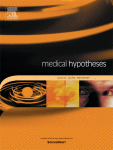Hi. I’ve been reading your threads looking for some answers and I’m sort of at the end of what I can figure out myself. In August I had a ear equalizing problem on a little prop plane (the most recent of many many possibilities for this injury) and I have been experiencing ‘rocking vertigo’ or the feeling like being on a boat ever since. It started out annoying but manageable but it’s gotten a lot worse. My fault for doing it, but we thought it was ETD and I tried to clear my ears with valsulva which backfired in a big way and made the rocking and pulling/pushing pressure many times worse. I did the VNG battery of tests earlier this week and that seemed to just get it all inflamed (?) or irritated and the rocking vertigo is making me crazy. I’ve gone from doing yoga a few weeks ago to being stuck in a bed, unable to walk without holding on to the walls. It feels like I’m being pushed backwards and moving around almost on a conveyor belt. Or like an extra bumpy Peter Pan ride at Disneyland but in reverse. Has anyone else experienced this? For me it’s like constant vertical and lateral movement. And it’s driving me out of my mind,
So another thing, when the Dr. doing the testing said he suspects Perilypthatic Fistula my ENT dropped me as a patient because it’s beyond his scope. I was being prescribed steroids but the ENT wouldn’t tell me if I should start taking them again (I stopped them leading up the VNG) I have an appointment with a specialist at UCI in a bit more than a month but I can’t make it until then without a way to cope. This is completely debilitating, I have no medication or instructions to keep it from getting worse and I feel scared and alone. I can hardly eat and I know I’m not drinking enough water.
Today is my birthday (I know, ![]()
![]() ) and I’ve spent it in bed trying to block out the smallest sound that are making me want to scream. It sounds crazy but I think my neighbors are running a fan (not a connected house) and it’s driving me up the wall. This is not normal and I don’t know what I can do. The sound thing started in earnest at the balance testing place. They put these glasses on me that had some sort of buzzing motor next to my ear and my ear has been incredibly sensitive to sounds and any vibrations since. It’s painful and will not stop.
) and I’ve spent it in bed trying to block out the smallest sound that are making me want to scream. It sounds crazy but I think my neighbors are running a fan (not a connected house) and it’s driving me up the wall. This is not normal and I don’t know what I can do. The sound thing started in earnest at the balance testing place. They put these glasses on me that had some sort of buzzing motor next to my ear and my ear has been incredibly sensitive to sounds and any vibrations since. It’s painful and will not stop.
I haven’t found any stories on line that sound like mine, and it makes me feel like I’m losing my mind frankly. I just want this to stop! I have a busy job I love and a family I’m completely isolating myself from. I can’t take much more of this. Any advice on how to cope is very welcome.


